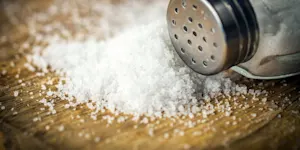What Makes This Word Tick
"Alembic" is an intriguing word that conjures images of bubbling cauldrons and secret elixirs. It's a noun that's not commonly used in everyday conversation, but when it appears, it adds a touch of alchemical mystery. The word itself often describes a process of refinement or transformation, much like the distillation process.
If Alembic Were a Person…
Alembic would surely be an old-world alchemist, complete with a long beard and flowing robes, forever experimenting and refining endless concoctions. A seeker of pure essences and profound truths, this character would approach the world with curiosity and a meticulous attention to detail.
How This Word Has Changed Over Time
Originally, "alembic" referred quite literally to a type of distillation apparatus used in alchemy and early chemistry. Over the centuries, its use has expanded metaphorically to describe any process of transformation or refining something into its purest form – whether that’s in art, thought, or spirit.
Old Sayings and Proverbs That Use Alembic
While "alembic" doesn’t directly appear in well-known proverbs, it carries the spirit of those old sayings about purification and refinement. Think of phrases like "boiling it down" or "getting to the essence," which echo the meticulous nature of the alembic process.
Surprising Facts About Alembic
Did you know the alembic still is one of the oldest distillation tools around? The design has been used since ancient times and is considered the predecessor of modern distillation equipment. Originally, its primary purpose was to distill perfumes and essential oils.
Out and About With This Word
You'll most likely encounter "alembic" in the context of historical texts, museums focused on alchemy and early science, or even in cocktail bars that showcase the art of distillation. The term is beloved by poets and writers for its metaphorical depth.
Pop Culture Moments Where Alembic Was Used
The word "alembic" might not headline pop culture magazines, but it occasionally pops up in literary references or films with themes of transformation or mystical processes, like "The Alchemist" or movies depicting historical events of discovery.
The Word in Literature
Alembic can be found simmering away in the pages of alchemy-themed novels or in metafiction as a process of distilling ideas. Authors who enjoy exploring themes of transformation, both spiritual and intellectual, might employ "alembic" to convey a deeper meaning.
Moments in History with Alembic
During the Islamic Golden Age, alembics were central to the work of early chemists and alchemists, like Jabir ibn Hayyan. Their work laid the foundation for modern chemistry, and alembics were instrumental in their experiments on the properties of various substances.
This Word Around the World
In different languages, "alembic" takes on fascinating twists. In Arabic, it’s "al-inbiq," and both French and Italian have similar versions. Regardless of the language, they all hint at distillation and refinement, showing the word's universal appeal despite cultural differences.
Where Does It Come From?
The word "alembic" finds its roots in the Arabic al-anbīq, translating to "distillery" or "still," which was adopted into Middle English from Latin and French. The passage through languages mirrors its role in transforming substances across cultures.
How People Misuse This Word
Occasionally, "alembic" gets tossed around in modern contexts to mean simply any kind of refining process, which dilutes (pun intended) its rich historical and alchemical context. Remember, it’s all about careful and meticulous transformation.
Words It’s Often Confused With
Elixir: While also related to alchemical transformation, "elixir" usually refers to a magical or medicinal potion, not the apparatus or process.
Distill: Often used interchangeably in metaphor, but "distill" is more about the process than the apparatus.
Alchemy: The broader art and science of transformation, of which the alembic is just one part.
Additional Synonyms and Antonyms
Synonyms include "distiller" when referring to the apparatus, but in a metaphorical sense "refiner" or "purifier" might fit. There aren’t many direct antonyms, but anything that would connote "contaminating" or "diluting" might stand in opposition.
Want to Try It Out in a Sentence?
Why not sprinkle a little literary magic in your conversation and say, "The alembic of time distilled his raw experiences into profound wisdom"? It’s sure to leave an impression!
















